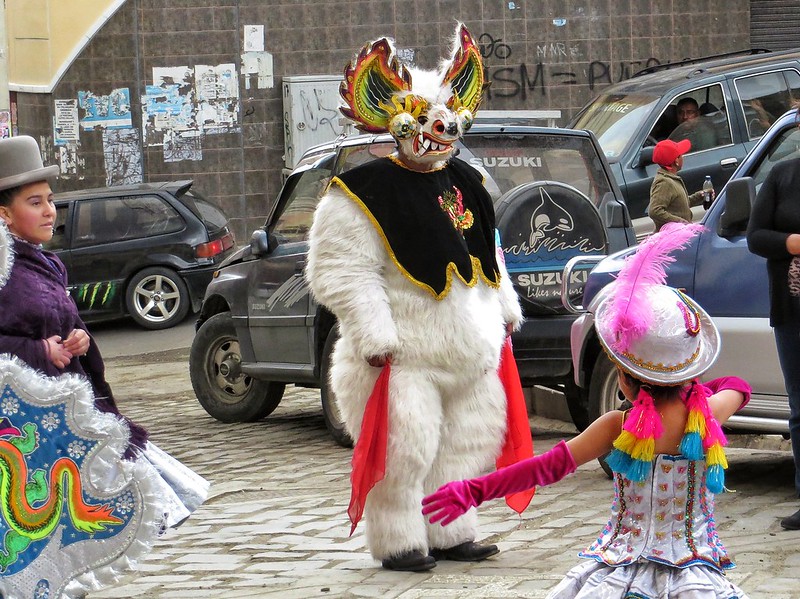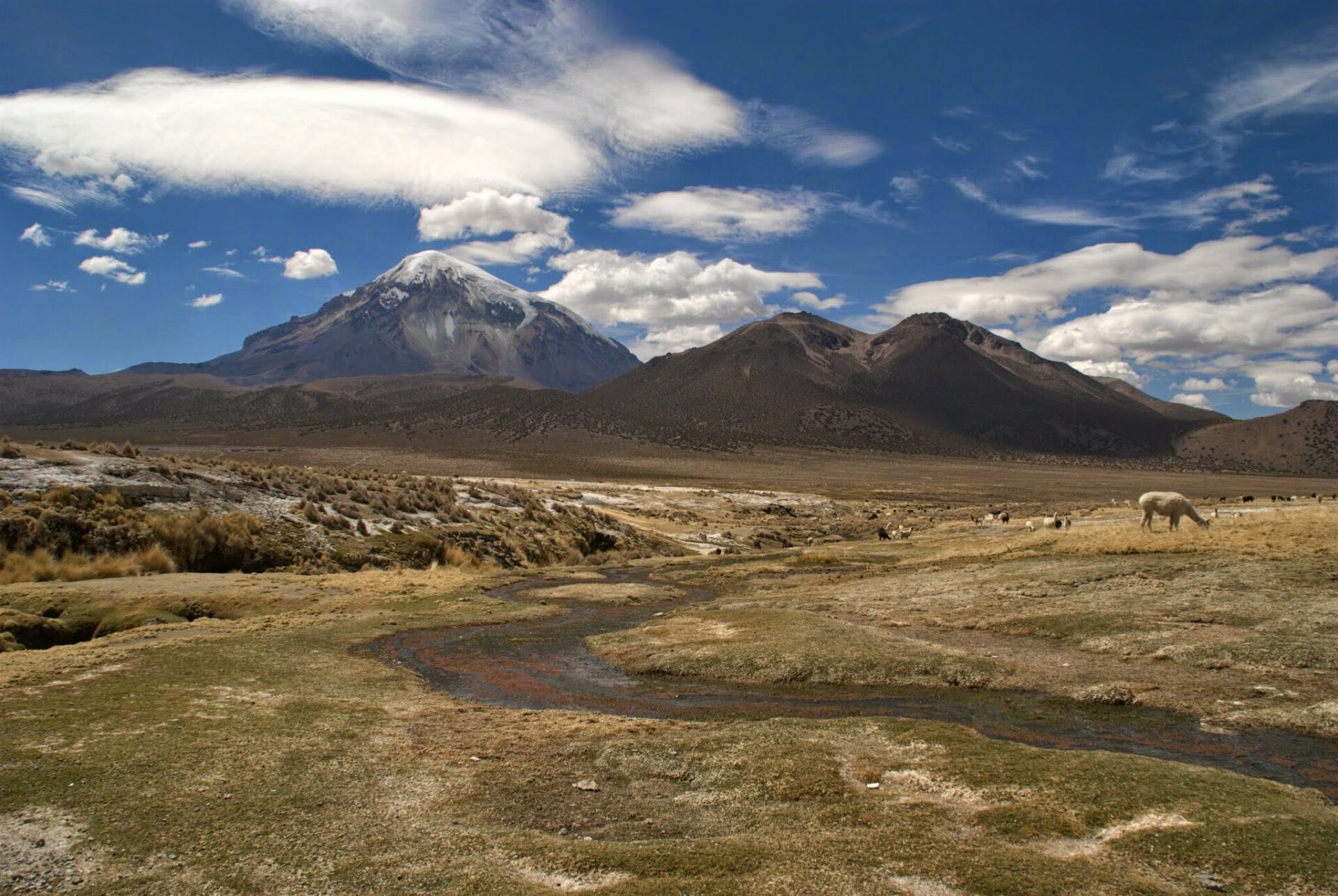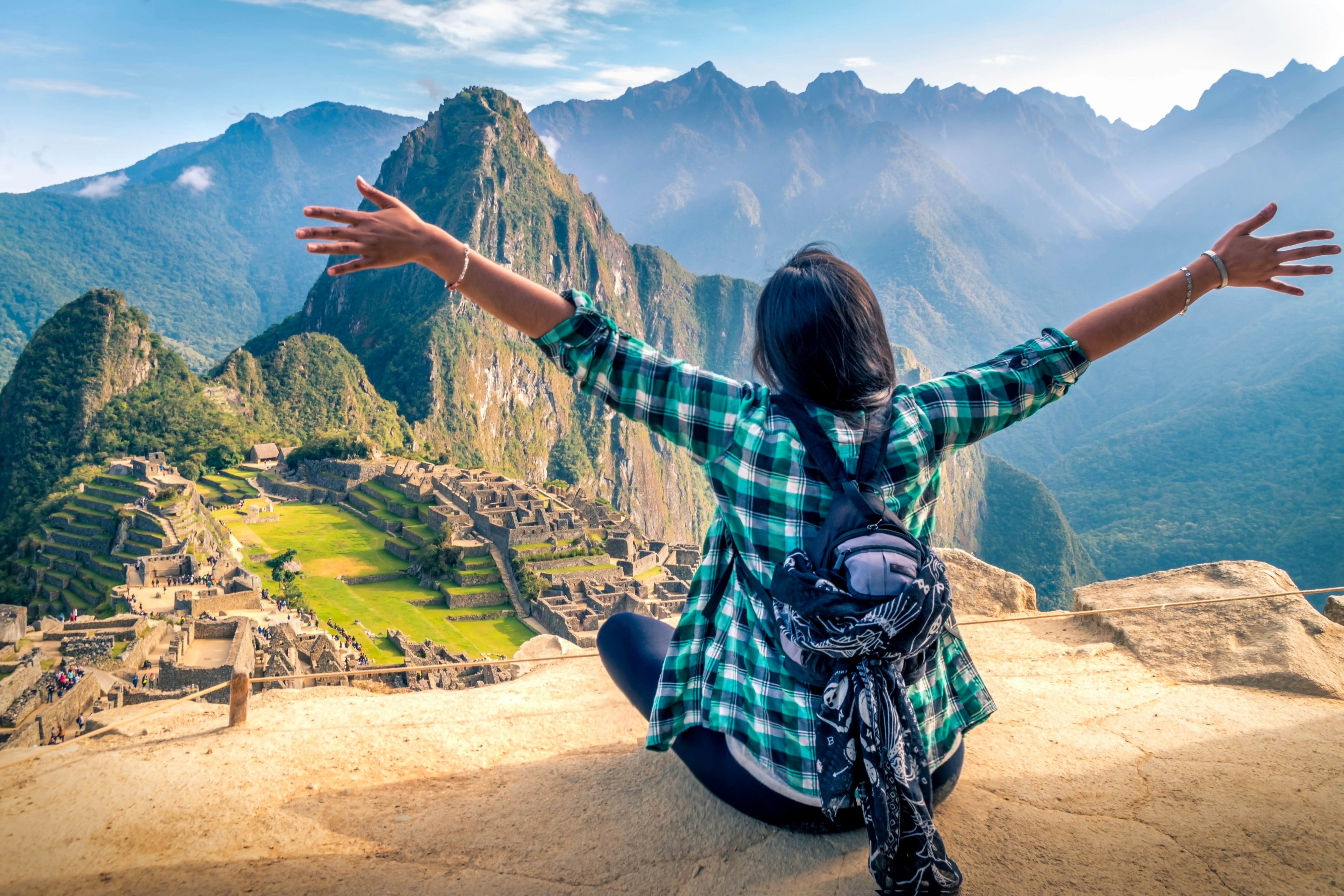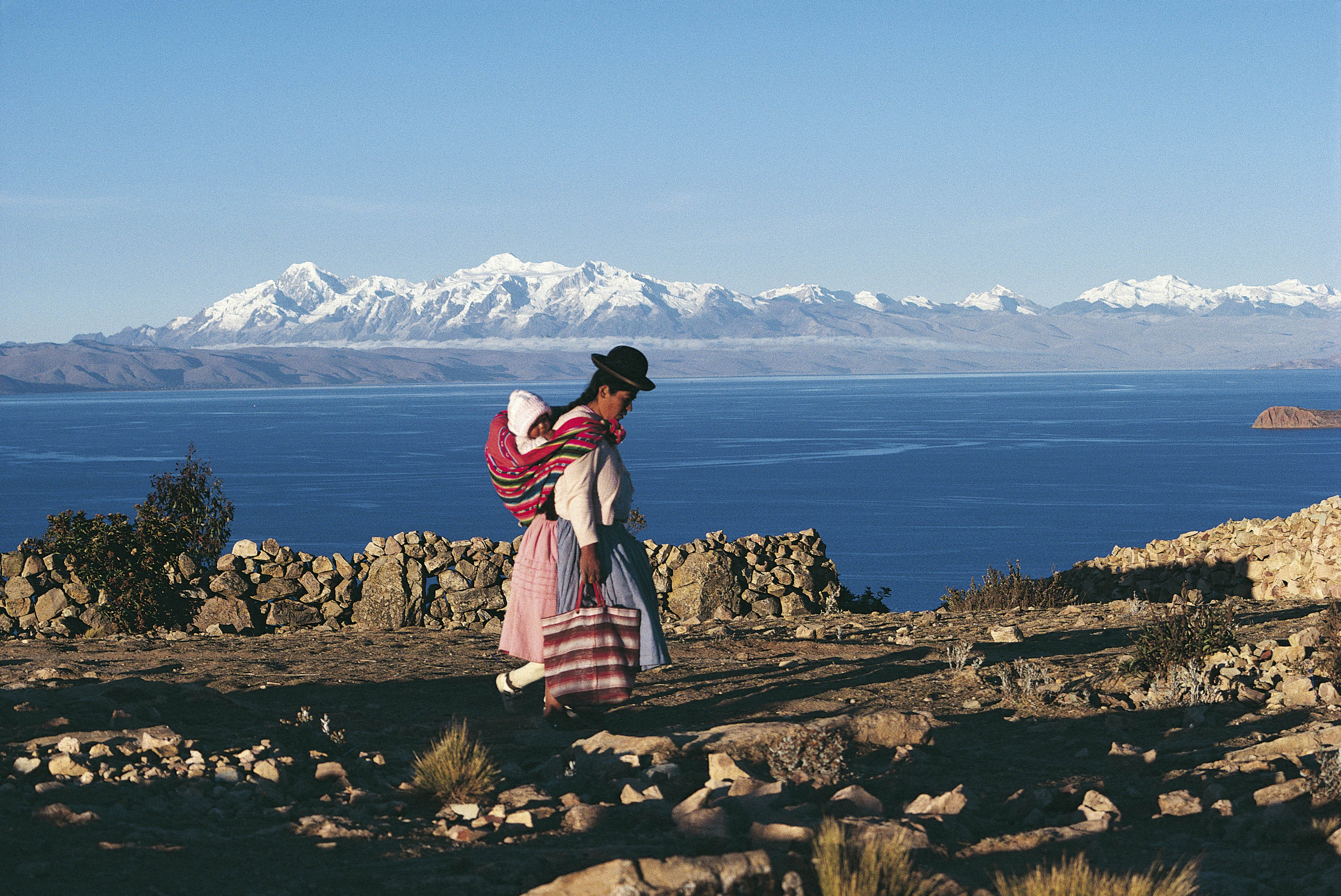Top Tips for Australians Traveling to Bolivia: What You Need to Know

Introduction
Overview of Bolivia
Bolivia, a diverse and culturally rich country in South America, offers visitors a mix of breathtaking landscapes, colourful traditions, and warm hospitality. From the snow-capped peaks of the Andes to the steamy jungles of the Amazon basin, Bolivia's geography is as varied as its people. The country is home to vibrant indigenous communities, each with its unique customs and languages, adding to the tapestry of Bolivian identity.
Purpose of the Guide
This guide aims to provide you with a comprehensive understanding of Bolivia, preparing you for an enriching and memorable travel experience. Whether you are planning a leisurely holiday exploring colonial cities or seeking adventure in the rugged wilderness, this guide will equip you with the knowledge and tips needed to navigate Bolivia with confidence.
By delving into Bolivian culture, visa and entry requirements, health and safety tips, transportation options, must-see destinations, local cuisine, language essentials, and more, you'll be well-prepared to make the most of your time in this captivating country. So, let's dive in and uncover the wonders that Bolivia has to offer!

Understanding Bolivian Culture
Cultural Etiquette
When exploring Bolivia, embracing local customs and etiquette is key to forming meaningful connections with its people. Here are some essential cultural etiquette tips to keep in mind:
- Greetings are a vital part of Bolivian culture; a warm handshake or a kiss on the cheek (one or two, depending on the region) is customary.
- Respect for elders is highly valued in Bolivia, so addressing seniors with proper titles like "Don" or "Doña" is appreciated.
- When dining with locals, it's polite to wait for the host to start eating before you begin.
- Avoid discussing controversial topics like politics or religion unless invited to do so.
Traditional Customs
Bolivia's rich cultural heritage is reflected in its traditional customs, passed down through generations. Here are some fascinating customs you may encounter:
- The Aymara New Year celebration in June, known as "Willkakuti," marks the Andean solstice with rituals and offerings.
- The vibrant Carnival of Oruro, a UNESCO-recognized event, showcases colourful dances and elaborate costumes in honour of the Virgin of Candelaria.
- Coca-leaf chewing is a common practice in Bolivia and is believed to have medicinal and spiritual significance for many indigenous communities.
By immersing yourself in Bolivian cultural etiquette and traditional customs, you'll gain a deeper appreciation for the country's rich heritage and forge authentic connections with its people.

Visa and Entry Requirements
Visa Application Process
Before embarking on your Bolivian adventure, it's crucial to understand the visa requirements and application process. Here's a simplified guide to help you navigate the visa application:
- Tourist Visa: Citizens of many countries, including most European nations, can enter Bolivia without a visa for tourism purposes for up to 90 days.
- Visa Extensions: If you plan to stay longer than the initial 90 days, you can extend your visa for an additional period.
- Visa Application: Visit the nearest Bolivian consulate or embassy in your home country to acquire a tourist visa, providing necessary documents like a valid passport, application form, and proof of accommodation.
Entry Regulations
Understanding the entry regulations and requirements when landing in Bolivia can ensure a smooth start to your journey. Here are some essential points to note:
- Passport Validity: Ensure your passport is valid for at least six months beyond your planned departure date from Bolivia.
- Tourist Card: Upon arrival, you may need to complete a tourist card provided by immigration authorities.
- Yellow Fever Vaccination: Travelers arriving from countries with a risk of yellow fever transmission must present a valid yellow fever vaccination certificate.
By familiarizing yourself with the visa application process and entry regulations, you can enter Bolivia prepared and make the most of your time exploring this vibrant country.

Health and Safety Tips
Vaccinations and Health Precautions
Taking care of your health is paramount when travelling to Bolivia to ensure a safe and enjoyable experience. Here are some essential vaccinations and health precautions to consider:
- Routine Vaccinations: Ensure your routine vaccines are up to date, including measles-mumps-rubella (MMR), diphtheria-tetanus-pertussis, varicella (chickenpox), and influenza.
- Yellow Fever Vaccine: Depending on your travel itinerary, a yellow fever vaccination may be required as Bolivia is in a yellow fever endemic zone.
- Altitude Sickness: When visiting high-altitude areas like La Paz or Sucre, acclimatize slowly to prevent altitude sickness. Stay hydrated and avoid excessive physical exertion.
Safety Guidelines for Travelers
Maintaining your safety while exploring Bolivia is essential to have a worry-free journey. Here are some safety guidelines for travellers to keep in mind:
- Secure Your Belongings: Keep your valuables secure, especially in crowded places and public transportation.
- Stay Informed: Stay updated on the current political and social situation in Bolivia to avoid potential unrest or demonstrations.
- Emergency Contacts: Save emergency numbers for local authorities, medical services, and your embassy in case of any unforeseen circumstances.
By prioritizing your health with necessary vaccinations and following safety guidelines, you can focus on immersing yourself in Bolivia's beauty and culture without unnecessary worries.
Currency and Money Matters
Currency Exchange
Navigating currency exchange in Bolivia is an essential part of managing your finances during your trip. Here are some key points to keep in mind:
- Bolivian Boliviano (BOB): Boliviano is the official currency. It's recommended that you exchange your currency with Bolivianos upon arrival for convenience.
- Exchange Rates: Compare exchange rates at banks, official exchange offices (Casas de Cambio), and hotels to get the best rate without steep commissions.
- ATMs: ATMs are widely available in major cities and accept international cards. However, always check for any additional fees charged by your bank for international withdrawals.
Budgeting Tips for Traveling
Creating a realistic budget for your travels in Bolivia can help you make the most of your experience without overspending. Consider the following budgeting tips:
- Accommodation: Opt for a mix of budget-friendly hostels, mid-range hotels, and maybe a splurge on a unique stay to balance your expenses.
- Transportation: Use a combination of public buses, shared taxis, and occasional private transfers to save on transportation costs.
- Eating Out: Enjoy the local cuisine at affordable market stalls and street food vendors, interspersed with dining at mid-range restaurants for a varied culinary experience.
By understanding currency exchange options and budgeting wisely, you can manage your expenses effectively and enjoy a fulfilling journey through Bolivia.

Transportation in Bolivia
Public Transportation
Getting around Bolivia efficiently requires an understanding of the available public transportation options. Here are some insights to help you navigate the local transportation system:
- Buses: In major cities like La Paz and Cochabamba, local buses are the primary mode of public transportation, offering a cost-effective way to travel short distances.
- Minibuses: Minibusses, known as "micros," are commonly used for intercity travel and can be a more direct and quicker option than larger buses.
- Trufis: Shared taxis called "trufis" operate on fixed routes within cities and are a convenient choice for getting around urban areas.
Car Rental Tips
Renting a car can provide you with the flexibility to explore Bolivia at your own pace. Here are some tips to consider when renting a car in Bolivia:
- International Driver's Permit: Ensure you have a valid International Driver's Permit along with your home country license to drive legally in Bolivia.
- Road Conditions: Be prepared for varied road conditions, from well-maintained highways to rough gravel roads, especially in rural areas.
- Insurance: Check the insurance coverage offered by the rental company and consider purchasing additional insurance for peace of mind.
By familiarizing yourself with public transportation options and considering car rental tips, you can choose the most suitable mode of transportation for your Bolivian adventure, ensuring a smooth and enjoyable travel experience.
Must-See Destinations in Bolivia
Tourist Attractions
Bolivia is a treasure trove of must-see destinations that offer unparalleled natural beauty and cultural significance. Here are some top tourist attractions worth adding to your itinerary:
- Salar de Uyuni: Explore the otherworldly salt flats of Salar de Uyuni, the world's largest salt flat, with its mirror-like reflections and stunning landscapes.
- Tiwanaku: Delve into Bolivia's ancient past at Tiwanaku, an archaeological site showcasing impressive stone ruins and intricate carvings dating back to pre-Columbian times.
- Lake Titicaca: Discover the tranquillity of Lake Titicaca, the highest navigable lake in the world, where you can visit traditional Indigenous communities and the famed Sun Island.
Off-the-Beaten-Path Recommendations
For adventurers seeking unique experiences off the tourist trail, Bolivia has hidden gems waiting to be discovered. Consider exploring these off-the-beaten-path destinations:
- The Yungas: Venture into the Yungas region for lush cloud forests, dramatic canyons, and adrenaline-pumping activities like mountain biking along the "Death Road."
- Torotoro National Park: Uncover the dinosaur footprints and ancient cave formations in Torotoro National Park, a lesser-known natural wonder perfect for hiking enthusiasts.
- Samaipata: Visit the charming town of Samaipata and its nearby archaeological site, El Fuerte, a pre-Inca ruin offering mesmerizing views and cultural insights.
By exploring both popular tourist attractions and hidden gems off the beaten path, you can create a well-rounded Bolivia itinerary that showcases the country's diverse landscapes and rich cultural heritage.

Local Cuisine and Dining
Traditional Bolivian Dishes
Exploring the culinary landscape of Bolivia is a delightful journey showcasing a fusion of indigenous and Spanish influences. Here are some traditional Bolivian dishes that you must try during your visit:
- Salteñas: These savoury pastries filled with meat, potatoes, and vegetables are a popular snack enjoyed by Bolivians throughout the day.
- Silpancho: A hearty dish consisting of breaded and fried beef cutlets served over rice, topped with a fried egg and sliced potatoes.
- Sopa de Mani: A flavorful peanut soup that combines beef, vegetables, and spices to create a rich and comforting dish, often served with a side of rice.
Dining Etiquette
Understanding Bolivian dining etiquette can enhance your culinary experiences and interactions with locals. Here are some dining etiquette tips to remember:
- Respect for Elders: Show respect by allowing elders to start eating first and addressing them with proper titles like "Don" or "Doña."
- Use Utensils: In formal settings, it's customary to use utensils, but in more casual situations, it's acceptable to eat with your hands.
- Tipping: Tipping is not mandatory in Bolivia but is appreciated, especially in higher-end restaurants where a 10% tip is customary.
By immersing yourself in traditional Bolivian dishes and practising dining etiquette, you'll not only savour the flavours of Bolivia but also appreciate the cultural significance attached to food and communal dining experiences.
Language and Communication
Common Phrases
In Bolivia, embracing the local language can enhance your travel experience and foster connections with the people. Here are some common Spanish phrases that can be useful during your time in Bolivia:
- Hola - Hello
- Gracias - Thank you
- Por favor - Please
- ¿Cuánto cuesta? - How much is it?
- ¿Dónde está...? - Where is...?
Language Tips for Travelers
While Spanish is the official language in Bolivia, understanding a few language tips can make your communication smoother and more enjoyable during your trip:
- Learn Basic Phrases: Familiarize yourself with basic Spanish phrases to navigate daily interactions, such as ordering food or asking for directions.
- Practice Pronunciation: Pay attention to pronunciation, as Spanish in Bolivia may have some regional variations that differ from standard Spanish.
- Use a Translation App: Consider using a translation app on your phone for quick translations and assistance in more complex conversations.
By learning common phrases and following language tips for travellers, you can engage with locals, navigate your way around Bolivia more effectively, and immerse yourself more fully in the vibrant culture and traditions of this captivating country.

Conclusion
Recap of Top Tips
As you prepare for your journey to Bolivia, let's recap some top tips gathered throughout this guide to ensure a memorable and enriching travel experience:
- Cultural Immersion: Embrace Bolivian cultural etiquette and traditional customs to connect with locals and deepen your understanding of the country's heritage.
- Health and Safety: Prioritize vaccinations, acclimatize to high altitudes, and stay informed about safety guidelines to safeguard your well-being.
- Financial Planning: Familiarize yourself with currency exchange options and budget wisely to make the most of your trip without overspending.
Final Thoughts
Embarking on a trip to Bolivia opens the door to a world of wonders waiting to be explored. From the dazzling salt flats of Salar de Uyuni to the ancient ruins of Tiwanaku, Bolivia's diverse landscapes and rich history promise an unforgettable adventure. By immersing yourself in the local cuisine, mastering basic Spanish phrases, and navigating transportation options, you can create lasting memories and forge connections with the welcoming people of Bolivia.
Remember, every moment in Bolivia is a brushstroke in the vibrant tapestry of your travel story. So pack your bags, ready your spirit of adventure, and get ready to uncover the magic that awaits in this captivating South American gem. Safe travels!
